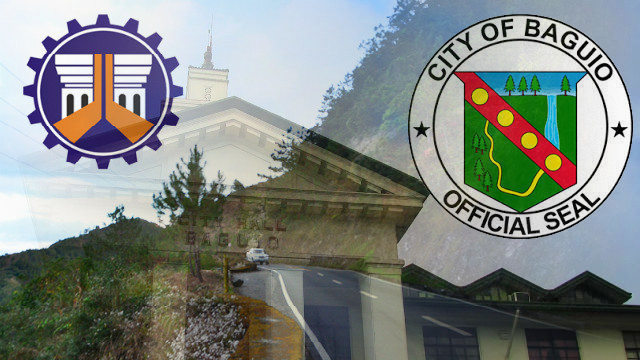BAGUIO CITY – The third division of the Supreme Court (SC) ordered the suspension of three employees of the Municipal Circuit Trial Courts in Cities (MCTCC) for a period of six months and one day after finding them guilty of conduct prejudicial to the best interest of the service because of their alleged photo-taking business inside the premises of the Baguio Justice Hall during office hours.
In an 8-page resolution, the SC also sternly warned Armando G. Ydia, Clerk of Court IV, Ofelia T. Mondiguing, Clerk of Court III and Rodel Federico L. Madriaga, Records Officer I, that a repetition of their actions or similar offenses shall be dealt with severely by the Court.
The High Court also ordered the Executive Judge, MCTCC, Baguio City, to issue a cease and desist order to all court personnel to immediately stop the controversial photo-taking activity within the court premises.
The ruling cited the three respondents did not deny the allegation that they had been conducting a photo-taking activity for a fee inside the Office of the clerk of Court but instead, they rationalized that the activity has been in existence for quite sometime and that the question of its propriety was put to rest through the issuance of the findings, suggestions and recommendations by Judge Nelson Lidua when it stated that the activity is a self-help project for a worthy purpose.
“Taking mug shots of the accused posting bail is not listed as one of the duties of respondents. The photo-taking business of respondents is beyond the scope of their official duties as officers of the court. Thus, they clearly violated Canon IV, Section 1 of the Code of Conduct for Court Personnel which state that the court personnel shall at all times perform official duties properly and with diligence and they shall commit themselves exclusively to the business and responsibilities of their office during working hours,” the decision stressed.
The SC cited no other office in the government exacts a greater demand for moral righteousness and uprightness from an employee than in the judiciary and indeed, the court is looked upon by people with high respect, sacred place where litigants are heard, rights and conflicts settled and justice solemnly dispensed.
“No less than the Constitution itself declares that a public office is a public trust. It enjoins public officers and employees to serve with the highest degree of responsibility, integrity, loyalty and efficiency and at all times remain accountable to the people,” the SC added.
Judge Roberto Mabalot stated in his complaint that during his short stint as the Executive Judge of the MCTCC from September 2009 to February 2010, he ordered Ydia, Mondiguing and Madriaga to stop their photo-taking activities, but the same resumed when an Acting Executive Judge was designated.
Upon knowing the resumption of the activity, Judge Mabalot warned and threatened respondents of administrative cases to be filed against them and reiterated his previous instructions to stop the said activity and even instructed his staff to require the accused or relatives to secure pictures outside the Hall of Justice and not from the OCC.
It was learned that the accused, who posted bail without asking the trial court for reduction, were directed by respondents to take their pictures inside the OCC with a fee of P100 and without official receipt.
For his part, Ydia denied the charges and narrated that then Executive Judge Benjamin C. Buena verbally instructed Clerk of Court Atty. Victoria M. Agtarap to have the photo-taking activity undertaken by the OCC instead of a private photographer so that all the MCTCC personnel would benefit from it not only the city-paid employees and private individuals are doing it for their sole benefits.
He emphasized the photo-taking inside the OCC was purely voluntary and that the activity continued over the past several years in consultation with the branch Clerks of Court and with prior approval of the presiding judges.
On the other hand, Mondiguing claimed that Judge Mabalot couched his complaint to make it appear that they were using their positions to financially profit from the photo-taking venture by using their subordinate to do the dirty work and that her principal defense to justify the photo-taking activity was the issuance by Judge Nelson Lidua of the findings, suggestions and recommendations.
According to her, Judge Mabalot has been reportedly benefitting from the proceeds of the photo-taking activity since 2007 when he joined the judiciary.
In his defense, Madriaga argued that as the records officer, he has no authority to instruct his co-employees to take pictures and collect fees and that he cited that the photo-taking activity was justified by the issuance of findings by Judge Buena.
Proceeds of the activity is reportedly being used for the Christmas party of the employees that the part of it is being given to the MTCC Branch 1.
By Dexter A. See














